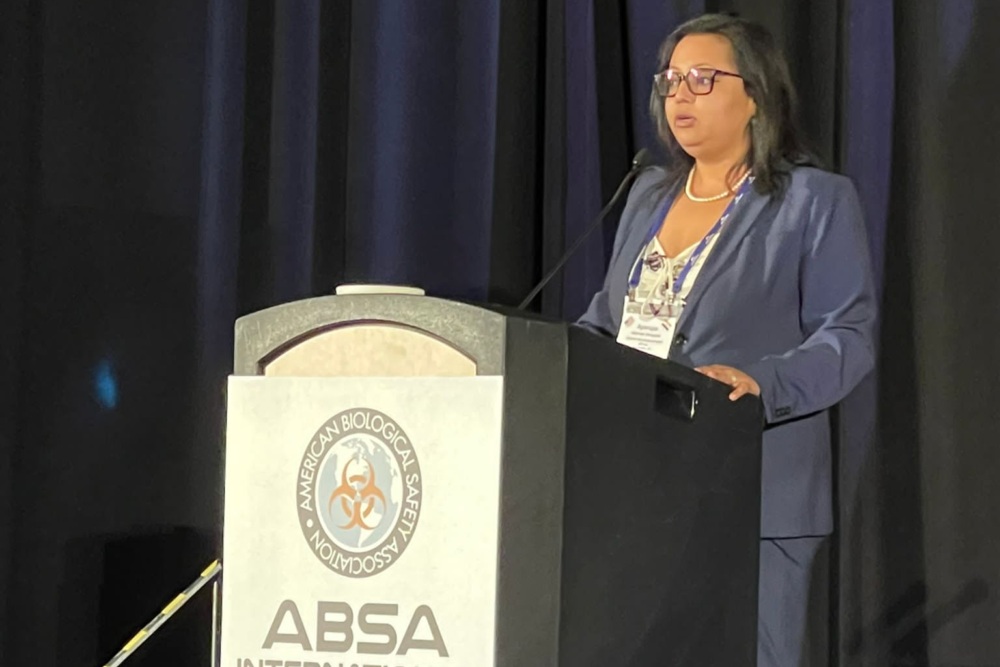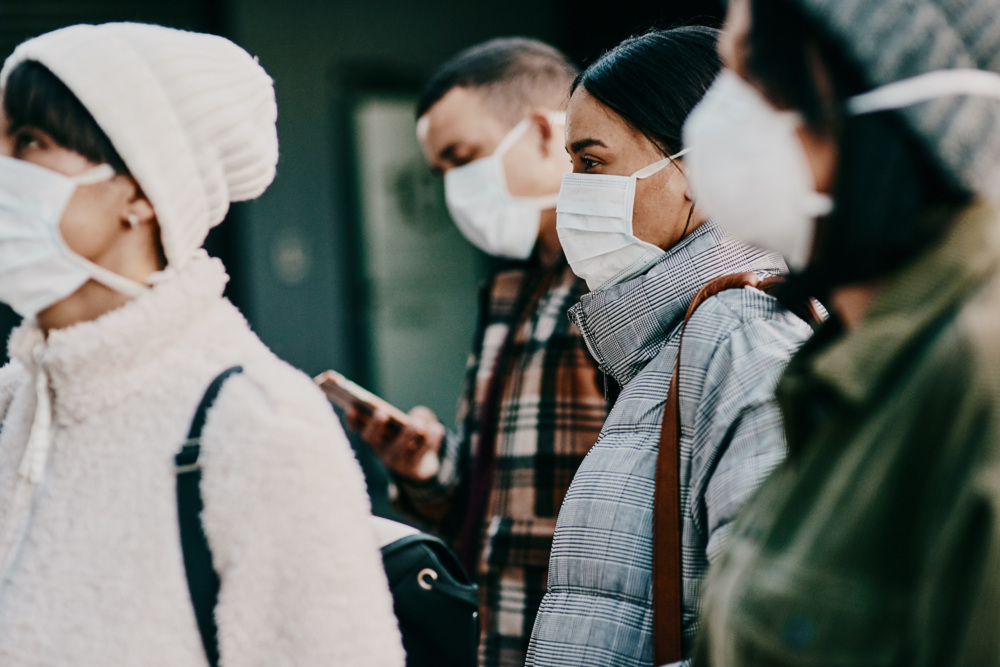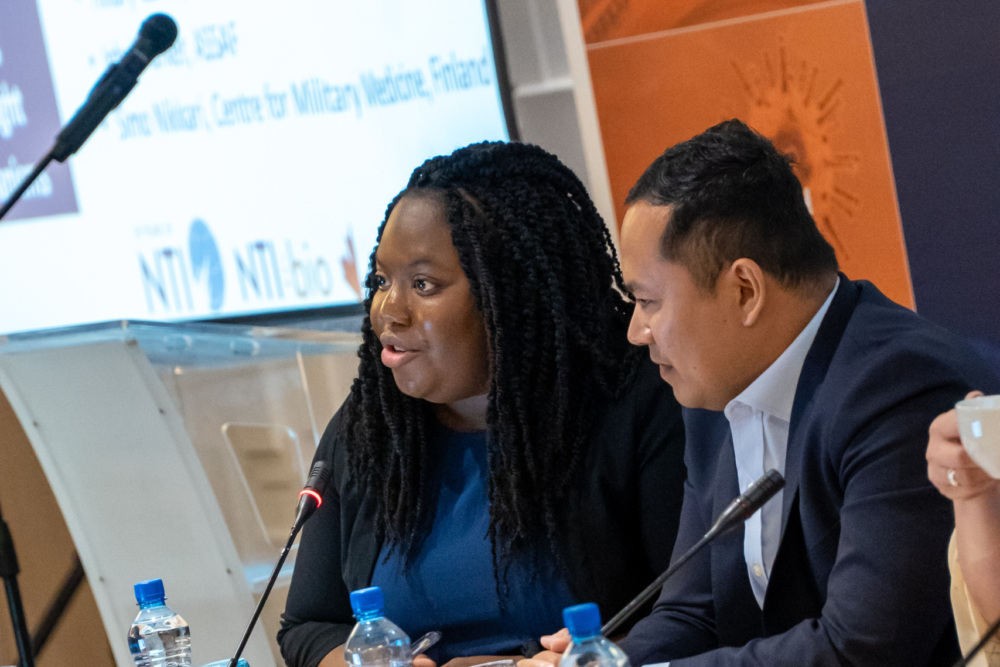
Aparupa Sengupta, Ph.D., RBP
Senior Program Officer, Global Biological Policy and Programs
Atomic Pulse
Biological threats, whether natural in origin or a result of human error or malicious acts, have the potential to:
At NTI, we believe the greatest risk of these catastrophic effects is from the accidental or intentional misuse of a bio-engineered agent. Therefore, we focus on developing stronger biosafety and biosecurity policies and practices to protect against these manmade risks. This work requires global cooperation and shared responsibility, and an understanding that diverse perspectives and experiences are essential. Without them, we will face widening knowledge gaps and international resentment, ultimately sabotaging our ability to collectively address bio threats.
Recently, the Center for Security and International Studies (CSIS) published a report recommending actions to strengthen global biosafety and biosecurity. As someone with more than 15 years of experience working in the interface of science, technology, and biosafety/security, I endorse all eight recommendations in the report but suggest adding a ninth one to the list: “Prioritize diversity and inclusion for effective global biosafety and biosecurity governance.”
U.S. Under Secretary for Arms Control and International Security Bonnie Jenkins—a leader on global security, a woman of color, and a champion of diversity in international affairs—has exactly the right take on this issue. According to Jenkins, “diversity makes better policy.”
The issue resonates deeply with me. Until I joined NTI in 2022, I struggled to find my stepping to enter the global biological policy sector. It took me a decade of persistence and hard work to build my professional reputation, and I finding right opportunity still didn’t come easy. Among the reasons: After graduate school, I didn’t know how to enter this field or where to apply for internships/fellowships; I wasn’t eligible for many fellowship/job opportunities as I am not an American citizen (and this still stands true); and I wasn’t based in Washington, D.C., and didn’t know the people who could help me make the kind of connections needed to enter the field.
I am sure there are many others struggling as I did. Identifying and removing barriers to opportunity is crucial to unlocking the potential of underrepresented talent and bringing diversity to this sector. In an increasingly complex and interconnected world, addressing common risks requires the development of approaches to problems that are at once innovative and broadly accepted, and diverse perspectives are crucial to this process.
With its leadership role and political clout globally in areas of scientific diplomacy, international security, technology governance, and conflict resolution, the United States can and must lead in this area. This shouldn’t be difficult: Its actions and policies often set important global precedents, and the country is a melting pot of talents, drawing brilliance from every corner of the globe.
Because many issues related to biosafety and biosecurity intersect with other vital national security concerns, those involved in government discussions often require security clearances for participation. That requires U.S. citizenship. However, non-governmental organizations and think-tanks working on these issues often can operate without such restrictions, allowing them to recruit more underrepresented voices. As elite thought leaders engaged in shaping U.S. and global biosecurity policies, these organizations would benefit enormously from recruiting from underrepresented regions to bring more diverse voices into the mix to inform policy decisions.
Multiple reports have been published that have highlighted the lack of diversity and representation of people of color and ethnicity across NGOs and think tanks. The data and research shows while the policy field champions diversity, equity, and inclusion as guiding principles, internally, it struggles to embody these values. The Center for Global Development (CGD) in its 2019 report highlighted the underrepresentation of women in leadership positions across 71 U.S.-based institutions. While not focused on people of color, the report’s findings demonstrate the broader lack of diversity in the sector. Although the trend is shifting slowly, there is clearly ample room for improvement on gender parity and diversity more broadly—in the United States and around the world.
In my experience, these are among the barriers to a more diverse and effective international biosafety and biosecurity landscape:
So how can those of us working in the field help bring down these barriers? Women of Color Advancing Peace, Security, and Conflict Transformation (WCAPS), a non-profit organization Bonnie Jenkins founded in 2017, offers one example by empowering young women of color to become influential voices in shaping peace and security. Other organizations are taking steps as well. At NTI, we are building diversity on our Board of Directors and nurturing young talent through a robust internship program that emphasizes inclusivity. NTI | bio also promotes diverse participation in the global biological policy meetings and workshops we host, inviting government and private-sector participants from across the world to join our international panels. To make sure our efforts don’t flag, we are tracking the progress and impact of our diversity efforts.
Such efforts are important, but they can’t be piecemeal. Inspired by WCAPS, NGOs, think tanks, and international organizations must act proactively by creating opportunities for professionals around the world by:
It certainly would have helped me break into the field much sooner than I did, and I’m certain it would help many more now. To repeat Jenkins’ important message: “Diversity makes better policy.” Times are uncertain today, and harnessing the collective talent of every corner of the globe is our strongest shield.
Sign up for our newsletter to get the latest on nuclear and biological threats.
NTI is working with international partners to develop a new Joint Assessment Mechanism (JAM) within the office of the UN Secretary-General to rapidly identify outbreak origins. Without the ability to quickly determine the origin of an outbreak, researchers are hampered in their ability to rapidly develop vaccines and other medical countermeasures that can slow the pace of the outbreak, ultimately saving countless lives.
NTI | bio Senior Director Nathan Paxton on using democratic collaboration to improve pandemic security
NTI | bio Program Officer Gabby Essix discusses diversity, equity, and inclusion (DEI) in the biosecurity field.



